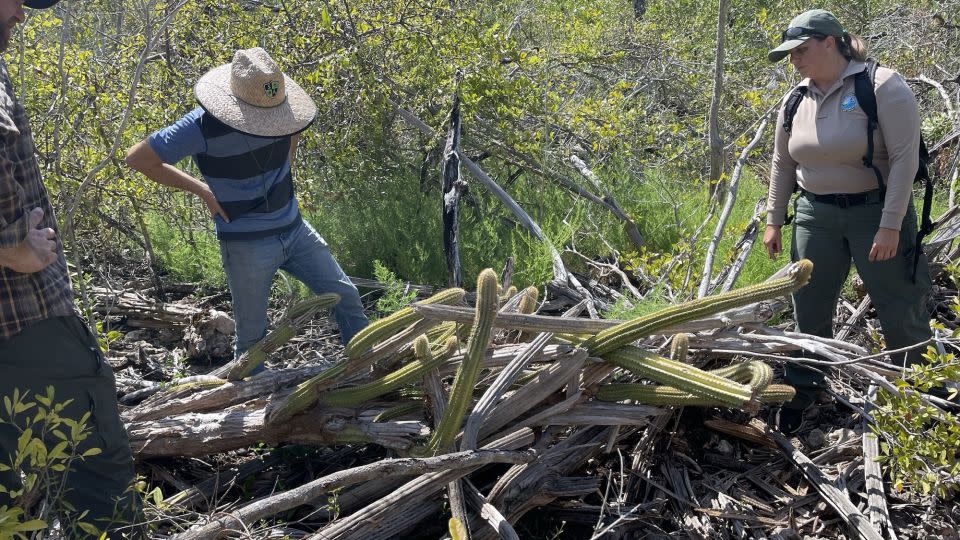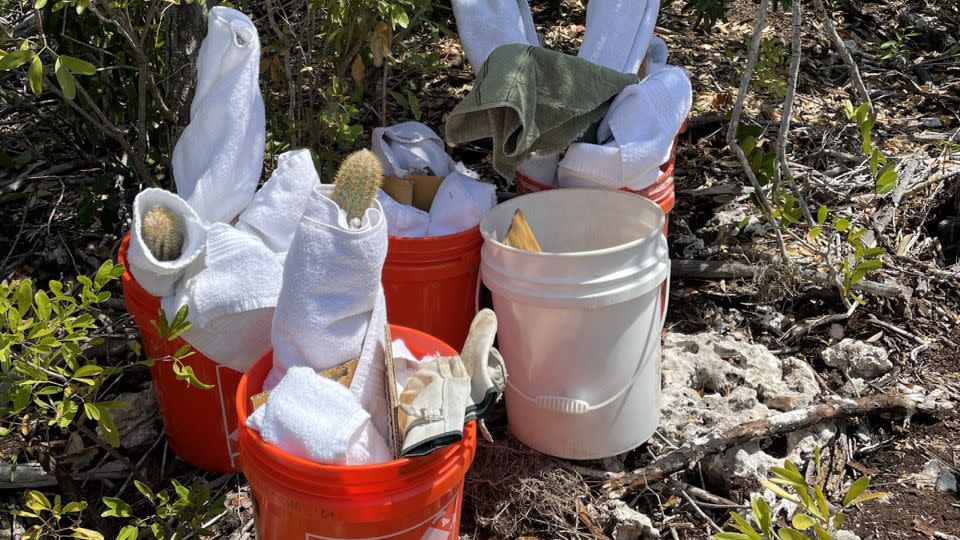A unique plant has become the first species in the United States to be wiped out from the wild by the compounding effects of rising seas, scientists say. It’s a grim first moment, but not the last, as scientists fear the plant’s disappearance could be a “tellmark” for other species as the climate crisis intensifies.
The combined effects of rising sea levels, rising tides and intense storms have driven Key Largo’s wild tree cactus population to extinction in its only known U.S. location in the Florida Keys, according to the published article this week in the Journal of the Botanical Research Institute of Texas.
“This is just one example of what is happening to dozens of species, and people need to understand that if we don’t do something, this loss will only accelerate,” said George Gann, study co-author and executive director. and president of the Regional Conservation Institute.
The Key Largo tree cactus still exists in parts of the Caribbean, including Cuba, Puerto Rico and the Bahamas, but the chances of it re-establishing itself naturally in the Florida Keys are basically “zero,” Gann said.
About 150 individuals existed in 2011 on a barren rock atop a small limestone outcrop among a multitude of mangroves in John Pennekamp Coral Reef State Park. But in 2015, researchers noticed that the cactus was dying at an alarming rate, a consequence of a unique animal attack but also of its location in the low-lying Florida Keys, most of which are just 5 feet above sea level. sea.
The plant’s habitat was being flooded by salt water due to storms and high tides made worse by rising seas. As pollution from fossil fuels warms the planet, it also warms and expands the oceans and melts ice sheets and glaciers, gradually raising water levels.
Sea level around the Florida Keys has been rising on average about 0.16 inches per year, or just over 20 centimeters since 1971, researchers reported.
“Too much salt is just a stressful environment for most plants,” James Lange, study co-author and research botanist at Miami’s Fairchild Tropical Botanic Garden, told CNN.
Plants can tolerate salty seawater for a few days, but when it lasts for weeks or more, “their structures are simply not prepared to deal with it because they are no longer receiving fresh water – they cannot feed their bodies. ”

In 2021, after years of exposure, only a few cacti remained. Researchers chose to remove them from the wild rather than let them die. The last wild straggler was removed in 2023 “because it was clear that the area would only continue to succumb to sea level rise,” the researchers said.
The loss of the species in the US is “an indicator of a larger problem,” Gann told CNN.
Sea level is expected to rise up to 7 feet by the end of the century around the Florida Keys, bringing even worse tides and ocean water intrusion — an existential threat to many other species, scientists say.
“Unfortunately, the Key Largo tree cactus may be a bellwether for how other low-lying coastal plants will respond to climate change,” said Jennifer Possley, lead author of the study and director of regional conservation at Fairchild.
Possley said more than 1 in 4 native plant species are critically endangered regionally in South Florida. They include the rare flowering plant Garber’s spurge, the small flower lily, small fruit veneer sheet and the Grisebach’s dwarf morning glory.
And it’s not just plants. Saltwater intrusion is depriving local wildlife of drinking water and forcing them to consume moisture-retaining plants like cacti, only worsening the problem for endangered plants. To solve this, biologists had to create small pools of freshwater to help keep animals and plants alive.
But these fixes are only temporary. The amount of planet-cooking pollution already burned in the atmosphere has resulted in decades of rising sea levels, which makes protecting biodiversity especially challenging, researchers say.


Researchers rescued the last remaining cacti in the wild, wrapping them in towels for protection and moving them to an off-site greenhouse to ensure the plants’ survival.
While there are plans to reintroduce the species to the Keys, researchers say finding suitable habitat that can withstand rapid climate change has been “difficult.”
Ultimately, Key Largo’s tree cactus may have no future in a wilderness made too wild by the climate crisis.
For more news and newsletters from CNN, create an account at CNN.com










/cdn.vox-cdn.com/uploads/chorus_asset/file/25565609/DSCF0053.jpg?w=300&resize=300,300&ssl=1)








/cdn.vox-cdn.com/uploads/chorus_asset/file/25550927/pixel_fold_9_google.png?w=300&resize=300,300&ssl=1)














